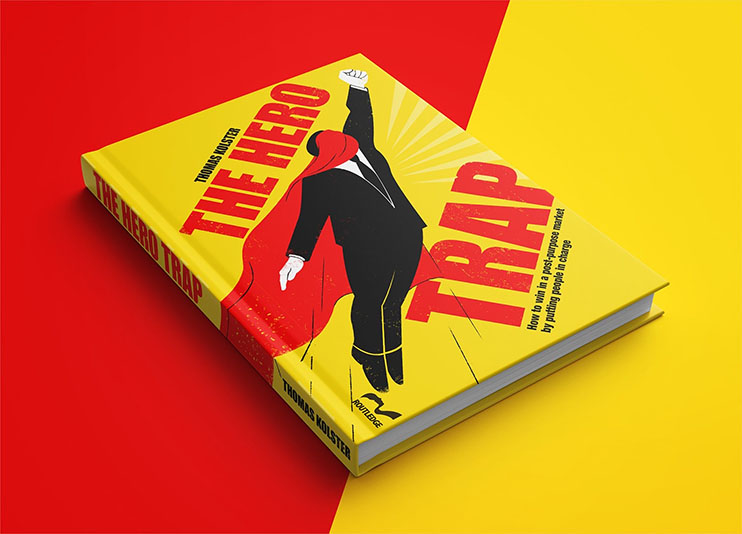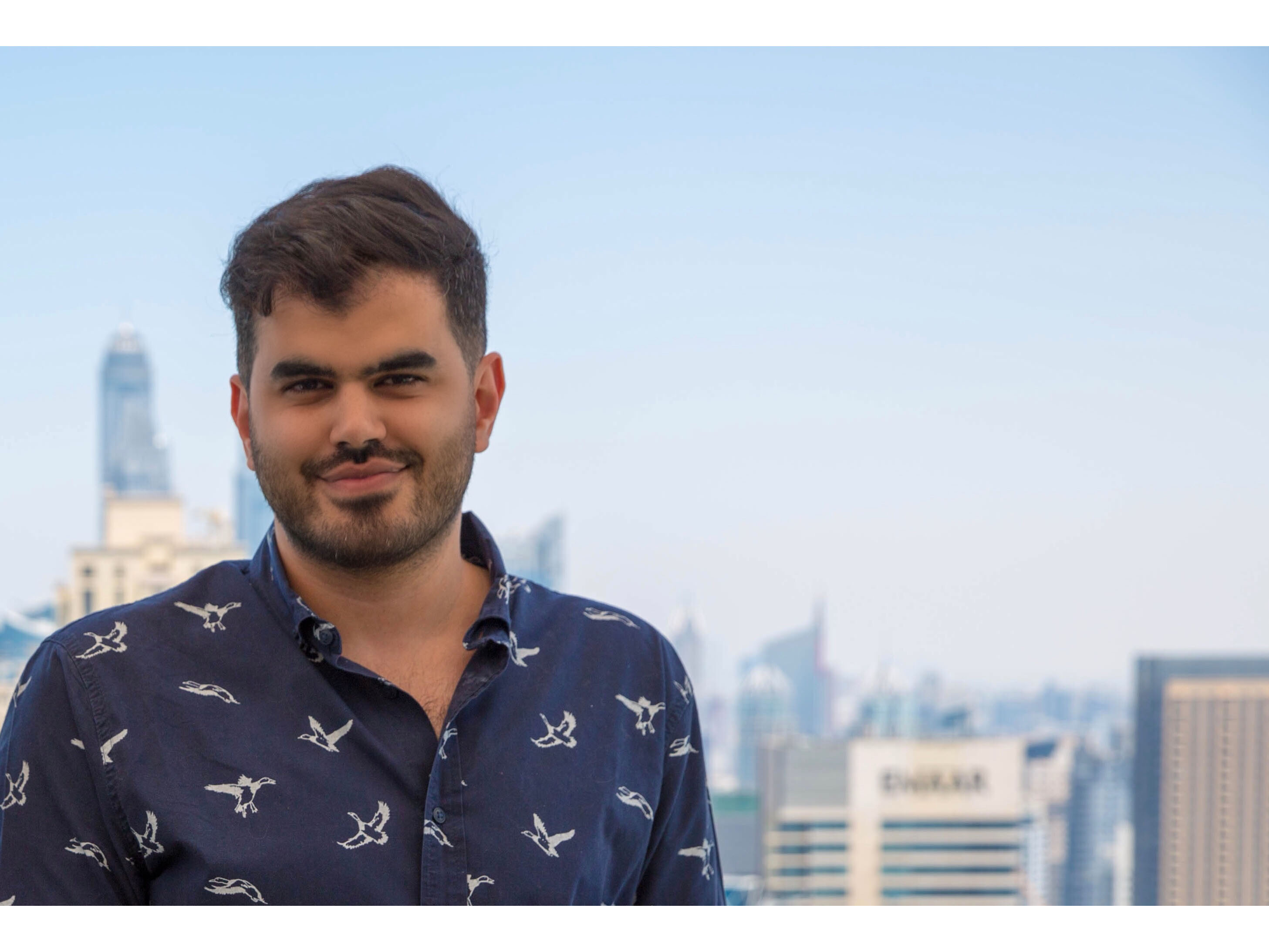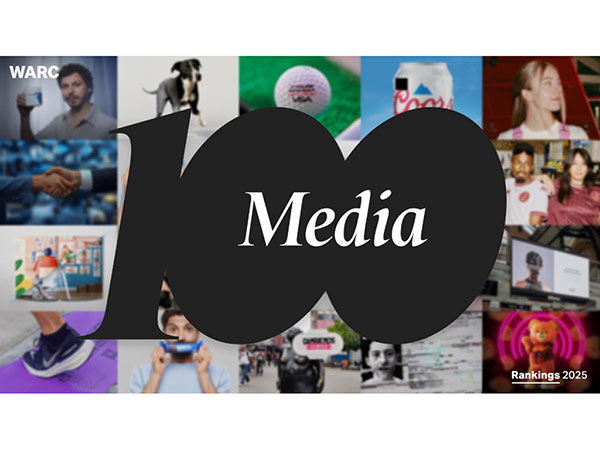News - Advertising
In newly launched book, Thomas Kolster challenges purpose and warns brands to avoid 'the hero trap'
by Ghada Azzi
July 24, 2020

Tell us more about the story behind your newly released book “The Hero Trap”?
I was wrong about purpose. I’ve been in the hurricane’s eye of the purpose revolution the last decade and have been a vocal advocate. Today, I’ve lost my belief in putting brands or leaders on that purpose pedestal rallying for change. If you try to fly like superman, you’ll fall like a can of soup. If we are to create change, we have to put people first. It’s a move from “why” your organisation matters in the world to understanding how you as a brand can help me to achieve “who” I want to be: making me matter. Simply, we are our own biggest enemies of change. Very few organisations have been able to bridge the purpose gap and get people to move from buying in to the purpose to actually buying the product or changing behaviours for the better. The intention is there, but action doesn’t follow. Through years of advising leaders and brands on purpose, I finally realised what the missing link was: the very people you are supposed to serve and consequently motivate. I looked to coaching methodologies and psychotherapy to understand how to move people from inaction to action, from unfulfilled to fulfilled. One simple but essential question helped spark the needed change: “Who can you help me become?” People are no longer simply buying marketing messages or a brand’s good-willed approach; they’re looking for a personal transformation. Anyone can sell them things, stories or identity, but very few brands can help people achieve their goals. That’s brand heaven as it’s moving the relationship from transactional to transformational, helping people be more, do more, see more, experience more! The business case is clear: One commissioned study comparing well-known commercials shows that by taking a people-first approach, people are 29.5% more motivated to act on the messaging than the traditional purpose approach
How did you manage to get yourself out of a 8-year writer’s crisis?
Haha, not sure I would call it a writer’s crisis as much as I really didn’t have anything important enough to say. There are tons of books out there and it’s close to economic suicide to write a book – so unless it’s a book that’s going to push the needle forward, I really didn’t wanna do it. This book found me – and it’s been an incredibly insightful journey for me as well. Especially since I had to challenge my earlier-held beliefs.
We know that it took you some time to come up with the name “The Hero Trap – How to win in a post-purpose market by putting people in charge” ... why that name exactly?
Oh yes, naming this book was like naming a child. Honestly, I did a long list of almost-there, could-be, maybes before I finally settled on one title. Everything from Transformability to Butterfly Brands. Guess that’s part of the lifelong struggle of creating anything. In the cover, I have openly shared those failed titles and so has the amazingly talented illustrator Edel Rodriguez done with the development of the cover as well. Guess as creatives – or anyone working in marketing – we have to embrace failure and keep trying.
What will this book offer to help revolutionize the marketing industry?
Today, it’s not about selling but about satisfying people’s urge for painting, shouting, dancing or however else they want to realise themselves. As more and more marketers are complaining about the lack of engagement online and declining engagement numbers, one has to ask whether it’s simply because the marketing industry in itself is to blame for not offering enough possibilities for engagement. The diagnosis is clear: marketers are stuck in a mass-marketing mindset. So how can you give people a part to play across the marketing mix from product to promotion? We’re entering a new era of marketing, where it’s not about what you say or what you do but about how you can enable others to sing your praises. It’s truly about time we begin respecting people as individuals with dreams and passions rather than a target group of dumb sitting ducks waiting to be force-fed. In my years in advertising, brands have spent billions to get people to wear a T-shirt with their name and logo on it; now it’s changing, and people can proudly wear their own accomplishments on their chests. The challenge cannot be ignored. What’s your response?
The book “Goodvertising” has literally taken the industry by storm, but do you think that the Goodvertising movement will ever be the norm of advertising?
Yes, most definitely. It’s ignorant to think that movements like #MeTo #BlackLivesMatter or #ClimateEmergency will go away. Each and every year, I do see more and more goodvertising work from across regions and especially in the award shows. Sustainability has become a must for any brand or leader wanting to prosper in the long run.
It’s truly about time we begin respecting people as individuals with dreams and passions rather than a target group of dumb sitting ducks waiting to be force-fed.
Do you think creatives can make an ad that balances commercial purposes and serving real needs?
For sure they can. Although our industry still has lots to learn. I do see more exciting work coming from client side these days like e.g. Carlsberg experimenting with Green Fiber bottles and its launch of the Snap Pack avoiding the plastic six-pack rings. And for the skeptics out there, I might add, the business case for balancing commercial benefits with serving real needs is pretty clear. Nike and Apple has a clear “WHO” they serve – a clear role – they play in their customers lives. Think about the unhindered creativity when working on an Apple MacBook: you are truly a creative. It’s not about the product, it’s about who you become. In the book, I showcase again and again that by growing people you grow the business. In one commissioned study, I also prove how people are on average +29,6% more willing to pay a premium price (WPPP)for brands that play a meaningful role in their lives.
You have been a speaker in a lot of worldwide events, tell us about the most remarkable talk you have ever given...
I feel blessed that I can travel around the world and meet and interact with many different cultures. Never really feels like work. I do have so many great experiences from speaking in Cairo, Lagos, Myanmar to Quito in Ecuador. But by the end of the day, it’s really not about the event, the country or the city, it’s always been about the people. In these challenging times, where we have politicians and movements trying to build walls between us simply because of skin colour, sex, religious or political beliefs it’s encouraging for me to see and experience humanity everywhere I go. We have so much more in common than divides us. It makes me optimistic that we can prevail!
In your opinion, will the COVID-19 affect how people/companies perceive advertising in the future?
I don’t think so. COVID-19 has in many ways been an abnormality or a period where we could rip the usual marketing rulebook apart and witness how many companies and individuals decided to do what they could in the fight against this horrendous and deadly disease. That said, I do think the way we consume will be affected. As many stores have been closed and people have been stuck at home, it’s been a global experiment in a different type of consumption. People have had the chance to discover that the best things in life aren’t things and taken time off to pursue new hobbies like playing the guitar or enjoying chores like baking. This was a trend already on the rise before COVID-19, not it’s only being enforced. There is little to no status involved in buying when everybody can, and we’re fast approaching a post-consumerist society where self- actualisation is valued higher than material success. This is, generally speaking, without ignoring the mounting economic divide between rich and poor and the many countries that struggle to deliver even a decent life for their citizens. Everything from mass-media to mass-production is being challenged, and for advertising it’s no longer about reaching people where they are but reaching “who” they are. The key takeaway is that brand is not enough; as an organisation, you have to have to help people live more simple, meaningful, independent and empowered lives, if you want to deserve people’s trust.
When every brand is pitching itself as Mother Teresa or Gandhi – who can be believed? Every brand can claim to have a big role to play in your life as their burning “why,”. But if you can’t see or feel the outcome, it’s another broken promise.
What’s the one global award you enjoyed judging the most?
I wouldn’t pick one over the other. I do feel we have more and more award shows honoring creativity for good. They are important as they serve as light houses for our whole industry and serve an important role in society as they do show brands and advertising is more than selling and creating wants – brands and advertising can serve needs and be part of the solution. It’s worth checking out awards like D&AD Impact Awards and Cannes Lions newly inaugurated Sustainable Development Goal Lions – a good starting point for everyone passionate about making a real difference with their creativity.
What would you advise the younger generations who’re aspiring to take marketing/advertising as their line of career?
I’d say, go do it. We need you. And if you don’t like working at an ad agency or for some company – go do your own shit. Spending time with marketing and advertising is never waste of time. Use what you love or hate to create the change you want to see in this world!
What would you say is the first step to avoid "the hero trap" and put people first?
If you try to fly like superman, you will eventually fall like a can of soup. Daily, I witness failures and missteps, and more and more people growing critical towards brands playing heroes. When every brand is pitching itself as Mother Teresa or Gandhi – who can be believed? Every brand can claim to have a big role to play in your life as their burning “why,”. But if you can’t see or feel the outcome, it’s another broken promise. That’s why leaders and organisations have to ask a different question: Who can you help people become? Then you motivate people to achieve their goals and dreams and when you grow people, you grow the business.
How would you define the post-purpose era?
We are witnessing the beginning of the post-purpose era, where people aren’t believing the fluffy purpose statements from brands. The market place is changing. People aren’t buying what you make e.g. a faster car, or why you make it e.g. a fossil-free future, they’re buying who you can help them become. Anyone can sell them things, stories or identity, but very few brands can help people achieve their goals. It’s moving the relationship from transactional to transformational, helping people be more, do more, see more, experience more!














